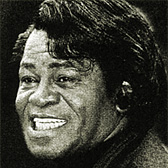
Topped the country charts in the ‘60s and ‘70s with songs like “I Get the Fever” and “Sometimes”
Bill Anderson
InducteeBecame the first country songwriter to receive the BMI Icon Award, in 2002
One of the few country singer-songwriters to cross over to pop in the 1960s with hits including “Still” and “8 X 10,” Bill Anderson topped the country charts in the ‘60s and ‘70s with songs like “I Get the Fever” and “Sometimes,” and enjoys the singular distinction of placing a song on the country charts for seven consecutive decades. But he is equally celebrated for his songwriting, thanks to such compositions as “City Lights,” a country No. 1 for Ray Price in 1958—when Anderson was just 19. He soon had hits with Connie Smith, Hank Locklin, Porter Wagoner, Jim Reeves and Faron Young, but the hits he had in the ‘90s and after with artists including Steve Wariner, Kenny Chesney, Vince Gill and Brad Paisley led to his becoming the first country songwriter to receive the BMI Icon Award, in 2002.
Known as “Whispering Bill” because of his breathy, “whispering” singing style, the Columbia, S.C. native grew up around Atlanta and graduated from the University of Georgia with a degree in journalism. He had worked his way through college as a radio station disc jockey (an experience reflected in his 1975 hit “Country D.J.”), and after moving to Nashville and landing a contract with Decca Records, began churning out hits like “Po’ Folks” (his back up group is The Po’ Folks Band), “Mama Sang A Song,” “The Tips Of My Fingers,” “Still” and “8X10”; besides the above-mentioned country artists, the many who covered Anderson compositions included James Brown, Debbie Reynolds, Ivory Joe Hunter, Kitty Wells, Lawrence Welk, Dean Martin, Jerry Lee Lewis, Aretha Franklin and Walter Brennan.
A Grand Ole Opry regular since his induction in 1961, Anderson has continued his stellar recording career, significantly winning awards as male vocalist and for his hit duets with Jan Howard and Mary Lou Turner. But his songwriting prowess has taken precedence, especially since the mid-1990s, when he commenced a songwriting renaissance via major co-written hits for Vince Gill (“Which Bridge to Cross--Which Bridge to Burn”), Steve Wariner (“Two Teardrops”), Mark Wills (“Wish You Were Here”), Joe Nichols (“I’ll Wait For You”), and Kenny Chesney (“A Lot Of Things Different”). He co-wrote the Country Music Association’s (CMA) Song of the Year in 2005 (“Whiskey Lullaby,” for Brad Paisley and Allison Krauss) and again in 2007 (“Give It Away” for George Strait), and in 2007 won a Dove award for co-writing the Country/Gospel Recorded Song of the Year “Jonah, Job, and Moses,” for the Oak Ridge Boys—the same year he won the CMA Vocal Event of the Year for “Too Country” (along with with Brad Paisley, George Jones and Buck Owens).
Among Anderson’s other awards are the Academy of Country Music’s inaugural Poets Award, in 2008; election into the Nashville Songwriters Hall of Fame (in 1975); induction into the Georgia Music Hall of Fame (1985) and the Georgia Broadcasters’ Hall of Fame (1993), and in 2001, induction into the Country Music Hall of Fame. Meanwhile, Anderson was the first country artist to host a network game show (The Better Sex, on ABC-TV), appeared regularly on ABC’s daytime drama One Life to Live, hosted The Nashville Network’s country music game show Fandango and its Opry Backstage interview show (and co-produced its You Can Be a Star), and hosted XM satellite radio’s Bill Anderson Visits with The Legends and RFD-TV’s Country’s Family Reunion.
Anderson’s autobiography Whisperin’ Bill Anderson--An Unprecedented Life in Country Music, was published in 2016.
Scroll to Discover Bill Anderson Connections




